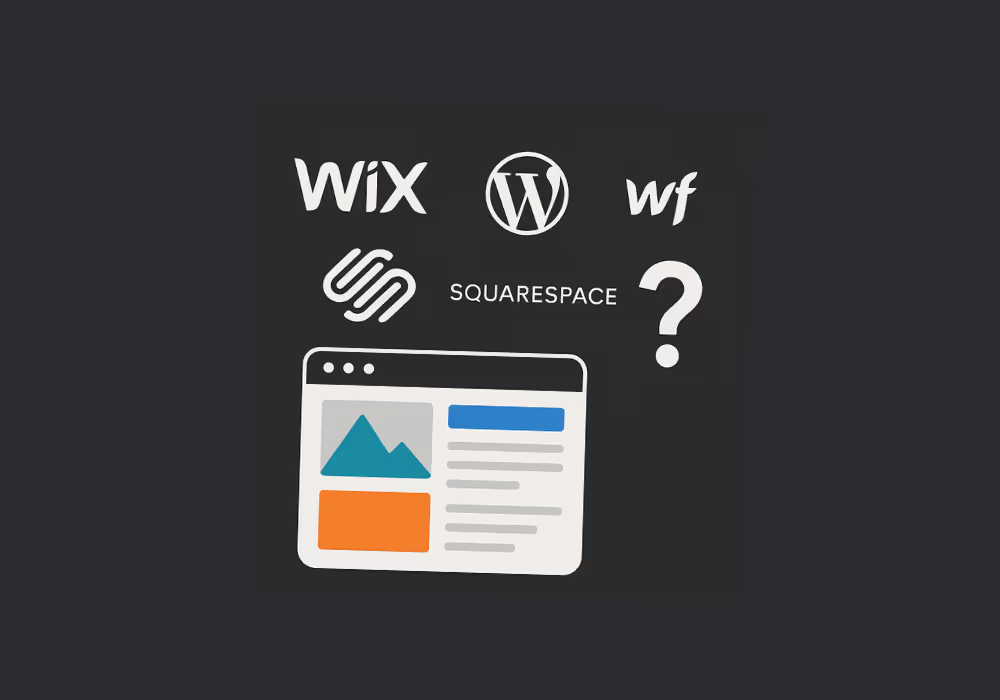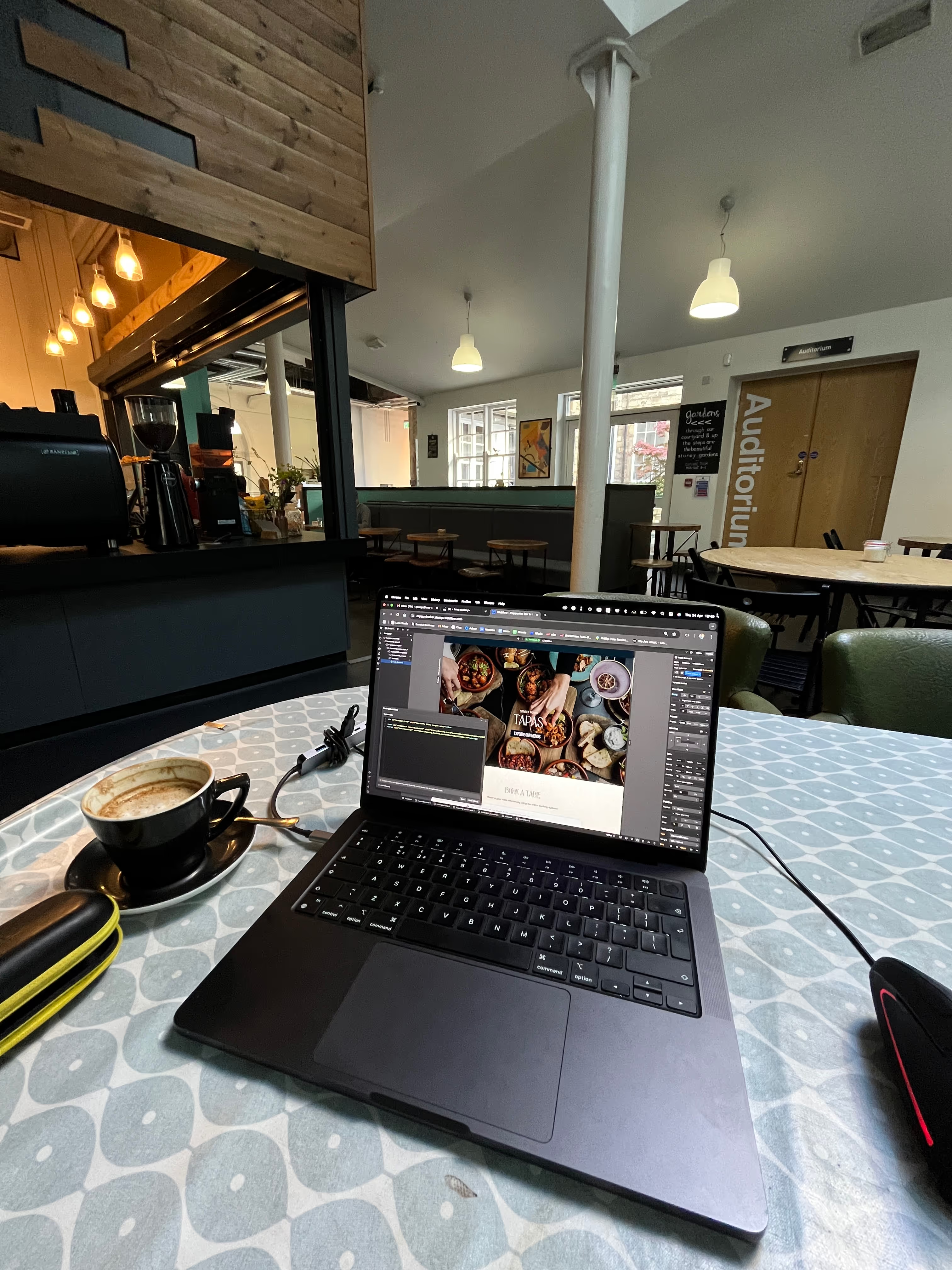Should You Build Your Own Website? Here’s What to Consider
DIY websites can be a great starting point, but they don’t always scale with your business. Here’s what to consider before deciding whether to build it yourself or bring in a professional.

Website builders have come a long way. With platforms like Squarespace, Wix, and Shopify, almost anyone can get a website online in a matter of hours - without writing a single line of code.
So, do you still need a web designer or developer?
At Lune Studio, we get this question a lot - especially from small business owners, startups, and local trades who are trying to keep costs down while getting their business off the ground. The honest answer? Sometimes DIY is enough. But other times, it quietly holds your business back.
In this post, we’ll unpack when a DIY website makes perfect sense — and when it might make sense to bring in a professional.
When Building It Yourself Makes Sense
Let’s be clear from the outset: there is absolutely nothing wrong with building your own site. In fact, for a lot of businesses, it’s a smart starting point.
Scenarios where DIY is totally valid:
- You’re in the early days of launching and just need a basic web presence
- You want to test an idea or concept before investing heavily
- Your site is more of a portfolio, blog, or brochure with low traffic expectations
- You have limited budget and need to prioritise other areas first
- You’re comfortable learning your way around DIY tools like Squarespace or Shopify
Website builders today are powerful. They offer sleek templates, drag-and-drop editing, and basic functionality that meets the needs of many businesses — at least to begin with.
If you’re bootstrapping or simply don’t need much complexity, a DIY site can be the right tool for the job.
But like any tool, how effective it is comes down to how it’s used.
These Tools Are Only as Good as Their Implementation
This is where many business owners run into trouble — not because they picked the “wrong platform”, but because they underestimated what a good website actually needs to do.
A great website isn’t just about how it looks. It’s about how it performs.
Here are a few of the less-visible elements that DIY sites often struggle with:
1. Performance & Speed
Search engines and users both expect fast-loading, lightweight websites. DIY platforms often use bloated code and generic templates that can slow things down, especially on mobile. A slow site means higher bounce rates and lower rankings.
2. Search Engine Optimisation (SEO)
Just publishing a site doesn’t mean it will show up on Google. Most DIY users don’t structure content correctly, optimise metadata, or know how to implement a content strategy that ranks. These platforms allow for SEO — but they don’t do it for you.
3. Conversion Strategy
What’s the goal of your website? To get enquiries? Bookings? Sales? A well-built website is strategically designed to guide users toward action. That means smart layout, clear calls to action, trust-building content, and user journeys that make sense. Most DIY sites focus on appearance over intent.
4. Scalability
As your business grows, you may want to:
- Add more services
- Include landing pages for ads
- Connect with CRMs or booking systems
- Automate tasks or lead nurturing
- Track performance with custom analytics
These needs often outgrow what a basic builder can do, or become clunky to implement later on.
5. Brand Identity
Templates are great — but they’re designed to suit everyone. That means they suit no one perfectly. A professionally designed site is tailored to your voice, tone, brand, and audience — not just made to “look modern.”
Good Design ≠ Good Website
This is the biggest misunderstanding we see.
Plenty of business owners have a site that looks great. Clean, modern, visually appealing.
But if it doesn’t:
- Rank for anything meaningful
- Bring in leads
- Work well on all devices
- Integrate with your workflow
- Support your long-term goals
…then it’s not helping your business. A good website is more than a digital brochure. It’s a tool. An asset. A growth engine.
What a Professionally Built Site Actually Delivers
At Lune Studio, we build websites that:
- Load fast and work seamlessly across devices
- Are structured for SEO, helping you show up where your customers are searching
- Are designed to convert — with purposeful layout and messaging
- Include smart automations to save you time
- Scale with your business as it grows
- Are 100% yours — no lock-ins, no hidden fees, full ownership
We often work with businesses who started with DIY platforms and hit a wall. Not because they did anything wrong — but because they’d outgrown what those tools were built for.
A Local Perspective
In Lancaster, many small businesses start with DIY sites, and that’s absolutely fine.
But as competition grows — especially in areas like property, construction, and hospitality — a generic online presence quickly becomes a bottleneck.
We’ve helped several local businesses transition from templated setups to fast, tailored websites with proper tracking, lead flows, and content strategy — all while keeping things affordable and practical.
It’s not about showing off. It’s about building something that works.
So, Should You Build It Yourself?
Ask yourself:
- What role will your website play in your business?
- Is it just for show — or is it a key part of how you attract and convert customers?
- Do you have the time and confidence to implement it properly?
- Will it grow with you?
If your website is mission-critical to your marketing, sales, or reputation, it may be worth investing in something more strategic from the outset.
But if you’re starting out, and just need a simple web presence? DIY is absolutely fine. You can always upgrade when you’re ready.
Not Sure? Try Our Free Website Audit
We’re not here to talk you into anything. But if you’d like an honest, practical look at your current site — we’ll give you one.
Our Free Website Audit will show you:
- How your site performs
- What’s working and what isn’t
- Suggestions you can action (DIY or not)
Have a project in mind?
Read more articles
Stay ahead of design trends, learn from industry experts, and discover creative strategies that drive business growth.
Subscribe to our newsletter
Lorem ipsum dolor sit amet, consectetur adipiscing elit. Suspendisse varius enim in eros elementum tristique.





